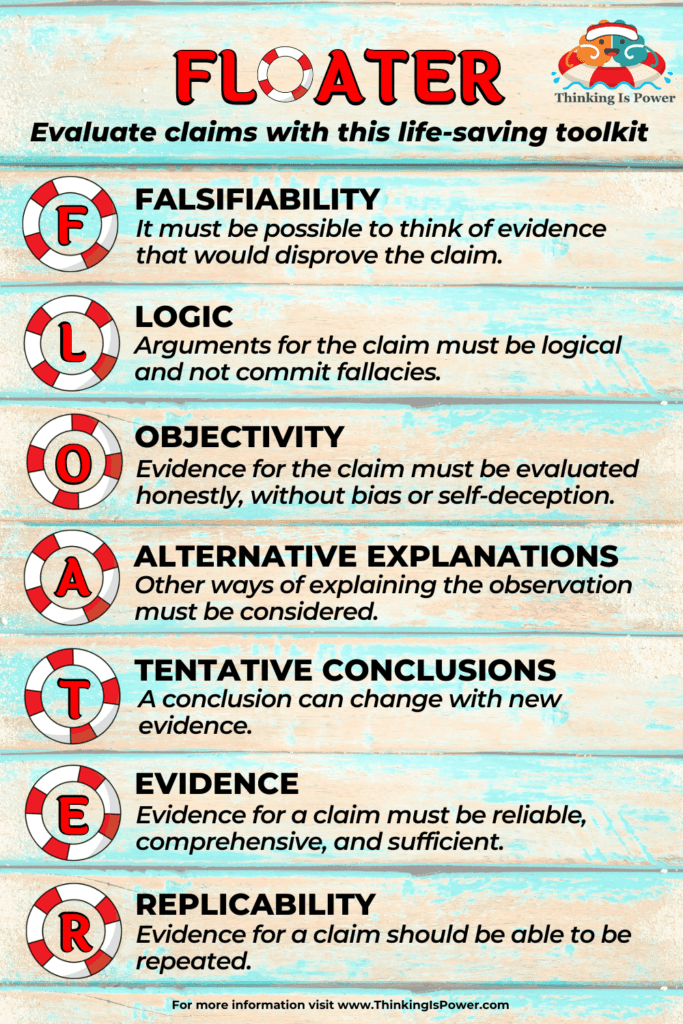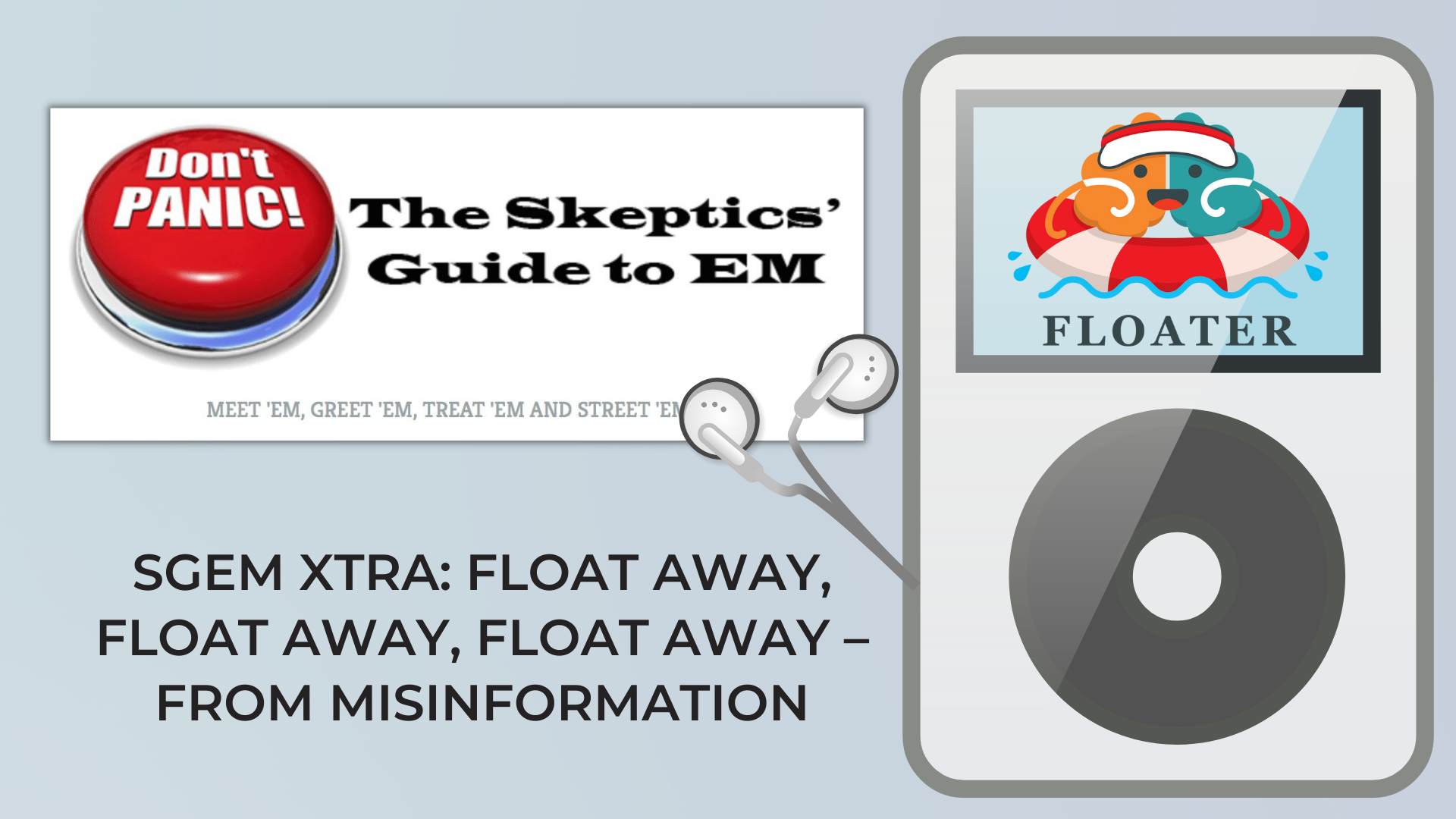Float away, float away, float away – from misinformation
From Dr Ken Milne of the Skeptics’ Guide to Emergency Medicine:
“This is an SGEM Xtra episode. I met Melanie through our online interactions on Twitter. She posts excellent tweets about critical thinking. I then discovered her amazing website called Thinking is Power. We also discovered through our social media interactions that were were both Feynman fans.
I asked Melanie to come on the show and discuss her recent article in Skeptical Inquirer and explain the acronym she created called FLOATER.


Melanie explains that FLOATER grew out of James Lett’s “A Field Guide to Critical Thinking” (Lett J. Skeptical Inquirer 1990), in which he summarized the scientific method with the acronym FiLCHeRS (Falsifiability, Logic, Comprehensiveness of evidence, Honesty, Replicability, and Sufficiency of evidence).
The FLOATER acronym stands for Falsifiability, Logic, Objectivity Alternative explanation, Tentative conclusion, Evidence, and Replicability. This was the basis for her article in Skeptical Inquirer. Melanie published her first article in the January/February edition called “Teach Skills, Not Facts”.
Listen to the SGEM Xtra podcast to hear Melanie explains each of the seven tools/rules that make up the FLOATER acronym.”
